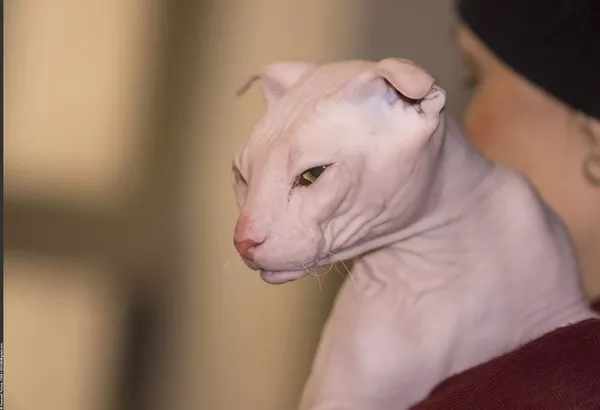The Devon Rex is a captivating breed of cat known for its unique appearance, playful demeanor, and curly coat. However, one question frequently arises among prospective cat owners: Is the Devon Rex hypoallergenic? In this article, we aim to explore the truth behind this common belief by examining the nature of feline allergies, understanding the characteristics of the Devon Rex breed, and delving into scientific research. By debunking myths and unraveling facts, we hope to provide clarity on the hypoallergenic nature of the Devon Rex.
Understanding Feline Allergies:
Before diving into the specifics of the Devon Rex breed, it is important to grasp the concept of feline allergies. Contrary to popular belief, cat allergies are not caused by cat hair itself but rather by a protein called Fel d 1, which is found in a cat’s skin, saliva, and urine. When cats groom themselves, they deposit this protein onto their fur, leading to allergic reactions in sensitive individuals.
Characteristics of the Devon Rex Breed:
The Devon Rex is an extraordinary breed with distinct features that set it apart from other cats. Its most notable characteristic is its short, wavy coat, which gives it a unique and captivating appearance. Unlike most cats that have three layers of fur, the Devon Rex only has one layer. This reduced amount of fur means less shedding and potentially fewer allergens being released into the environment.
While the Devon Rex’s coat may appear to be hypoallergenic at first glance, it is crucial to note that hypoallergenic does not mean allergy-free. The level of allergenicity can vary from cat to cat, and individual reactions to cat allergens can differ significantly. It is essential to consider each person’s specific allergy triggers before concluding if the Devon Rex is suitable for them.
Scientific Research:
Scientific studies exploring the allergenicity of different cat breeds have shed light on the hypoallergenic claims surrounding the Devon Rex. One study conducted by researchers at Indoor Biotechnologies Inc. analyzed the levels of Feld 1 protein in the fur and saliva of various cat breeds, including the Devon Rex. The results showed that the Devon Rex produced lower levels of Fel d 1 compared to other breeds, suggesting a potentially reduced allergenicity.
However, it is important to note that no cat breed can be truly hypoallergenic or completely devoid of the Fel d 1 protein. Even cats marketed as hypoallergenic can still produce enough allergens to trigger allergic reactions in sensitive individuals. Therefore, it is advisable for individuals with severe allergies to spend time with a Devon Rex before bringing one into their home to assess their personal tolerance levels.
Managing Allergies with a Devon Rex:
While the Devon Rex may not be completely hypoallergenic, there are steps that individuals with allergies can take to minimize their symptoms if they choose to share their lives with this unique breed:
1. Regular grooming: Brushing the Devon Rex’s coat regularly helps to remove loose fur and reduce the amount of allergens present in the environment. Bathing the cat occasionally can also help to further minimize allergen levels.
2. Allergen avoidance: Creating an allergy-friendly environment can significantly reduce exposure to allergens. This includes using hypoallergenic bedding, vacuuming frequently, and investing in air purifiers to filter out airborne allergens.
3. Consultation with medical professionals: Individuals with severe allergies should consult with allergists or immunologists to explore potential treatment options, such as medications or immunotherapy, that can help manage their symptoms.
Conclusion:
In conclusion, while the Devon Rex breed may exhibit characteristics that suggest reduced allergenicity, it is vital to understand that no cat breed is completely hypoallergenic. The levels of the Fel d 1 protein can vary among individual cats, and personal tolerance to allergens differs from person to person. Prospective Devon Rex owners with allergies should spend time with the breed to assess their compatibility and consider implementing strategies for managing allergies in conjunction with their healthcare professionals. By dispelling misconceptions and providing accurate information, individuals can make informed decisions about bringing a Devon Rex into their lives while considering their specific allergy needs.

![Is the Devon Rex Hypoallergenic? [Revealed!]](https://www.catsmeowweb.com/wp-content/uploads/2023/06/Devon-Rex-cat-5.webp)






















